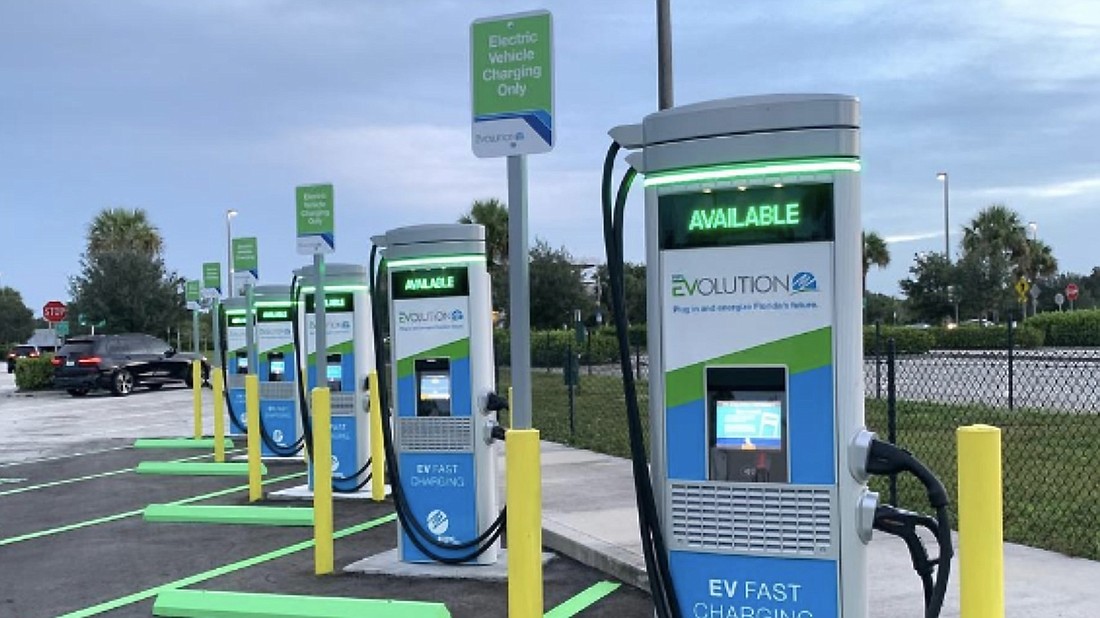- April 25, 2024
-
-
Loading

Loading

If Palm Coast wants builders to construct environmentally friendly homes and offer electric vehicle charging options, what's the best way to get them to do that?
"Europe is jumping into this big-time, and we can too."
— JEFFREY SEIB, chairman, Palm Coast Beautification and Environmental Advisory Committee
A citizen committee called the Beautification and Environmental Advisory Committee drafted a series of options for updating the city's existing Green Building Incentive Program and presented them to the Palm Coast Planning and Land Development Regulation Board on Jan. 19.
Beautification and Environmental Advisory Committee Jeffery Seib divided the committee's proposals into two categories — incentivizing green development, and supporting a transition from fossil fuels to electric vehicles.
To spur builders to use energy efficient technology, he told the planning board, the city could offer tax deductions for a period of five years for commercial or multifamily construction that meets standards for the green building rating program know as LEED — "Leadership in Energy and Environmental Design" — offering greater deductions for buildings that meet higher LEED rating levels.
Single-family homes would be eligible for certain incentives under the existing Green Building Incentive Program.
Another option, he said, would involve reimbursing builders for permit fees and expediting the permitting for builders.
"This would help speed up the process of construction approval, which would allow businesses to begin the process sooner rather than later," Seib said.
In terms of electric vehicle charging stations, Palm Coast partnered with FPL several years ago to offer two stations at City Hall.
"They get used frequently," Seib said, "And there’s another one at the Wawa gas station right down the road, but we could use some more.”
He suggested that the city speak with FPL about adding more charging stations, and consider offering per-charging-station incentives in the form of property tax deductions to apartment complexes and commercial buildings that install charging stations.
Dylan Long, a Flagler Palm Coast High School student who'd worked with the committee on the presentation, noted that people who have electric vehicles usually charge them at home, when possible, to avoid dealing with the time and cost associated with charging elsewhere.
But apartment residents wouldn't be able to charge from home — and would therefore be disincentivized from buying an electric vehicle — unless the apartment complex makes charging available.
It would also be helpful to incentivize the addition of charging stations at hotels and the installation of charging outlets in new single-family homes, he said.
"Generally, it is much cheaper and quicker to install charging when the construction is new than to retrofit it," he said.
Seib said that he expects Palm Coast to see more multifamily construction.
"That would be a great time to incorporate electric vehicle charging stations into these locations," he said.
For apartment complexes and condos, Seib said, the city could also allow builders to offer a certain number of charging stations in lieu of the required number of garages — for instance, swapping out one garage for one charging station, up to a predetermined number.
He noted that demand for electric vehicles is expected to grow, and some countries are embracing the technology: In Norway, for instance, electric and hybrid vehicles made up more than 90% of last year's vehicle sales.
"Europe is jumping into this big-time, and we can too," Sieb said.
Ray Tyner, Palm Coast's deputy chief development officer, noted that the city's financial department hasn't yet reviewed the committee's proposals.
"There needs to be more work on fleshing some of this out," Tyner said.